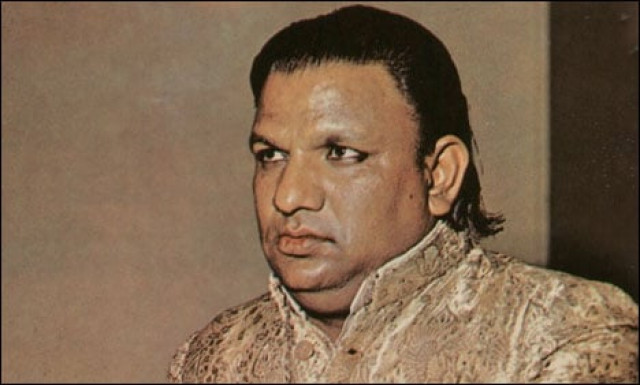Aziz Mian; gone but not forgotten
Aziz Mian holds the record for singing the longest commercially released qawwali which runs for about 115 minutes

PHOTO: FILE
Fans of legendary qawwal Aziz Mian will mark his 18th death anniversary today (December 6). During an illustrious career which spanned across four decades, Aziz Mian released 65 albums and captured countless hearts.
Born on April 17, 1942, in Delhi, during British rule, Aziz Mian migrated to Pakistan after the partition of the sub-continent. He received his early education in Lahore and at the young age of 10, became a mentee of famous classical singer Abdul Wahid Khan. Alongside his musical education, he also went on to pursue degrees in Urdu literature, Persian and Arabic from the University of Punjab.
He first began performing at private gatherings. However, his official ‘start’ came in 1966 when he performed in front of the Shah of Iran Reza Shah Pahlavi. The Shah of Iran was so moved by his performance that he gave Aziz Mian a gold medal.
From this moment on, Aziz Mian gained popularity and started releasing albums. In addition to singing qawwalis, he was also an expert at singing ghazals. He became a noted member of the qawwal community due to his unique and crisp voice.
“During that era, the Sabri brothers, Nusrat Fateh Ali Khan and other singers dominated the scene. But Aziz Mian proved himself and earned fame due to his own unique style,” says Shair Ali, a renowned qawwal.
His style would captivate audiences, which would attend live performances in large crowds. His services to the art form in this region will forever be remembered,” adds qawwal Mehar Ali.
He was a talented man, a good poet and well-educated, says folk singer Shoukat Ali. “Majority of the poetry he recited during performances was his own,” he explains.
“Ultimately, it was his charismatic style and personality which earned him his fame. He was a Sufi and leaned towards spirituality which is why he was the first choice among those who enjoyed qawwalis,” he states.
During his career, Aziz Mian performed in various countries around the world. He also holds the record for singing the longest commercially released qawwali, hashr ke roz yeh poochhunga, which runs for about 115 minutes. Some of his more popular qawwalis include Allah janay kon bashar hay, nabi nabi ya nabi nabi, mein sharabi and admi hay bainazir.
In 1989, the government of Pakistan awarded him with the Pride of Performance medal for his contributions to the field of qawwali. He died on December 6, 2000 in Tehran, Iran, where he had been invited by the government to perform. He was later buried in Multan.
Nonetheless, Aziz Mian’s legacy will still live on in the hearts of those he touched. He leaves behind three sons who have followed in the footsteps of their father.



















COMMENTS
Comments are moderated and generally will be posted if they are on-topic and not abusive.
For more information, please see our Comments FAQ